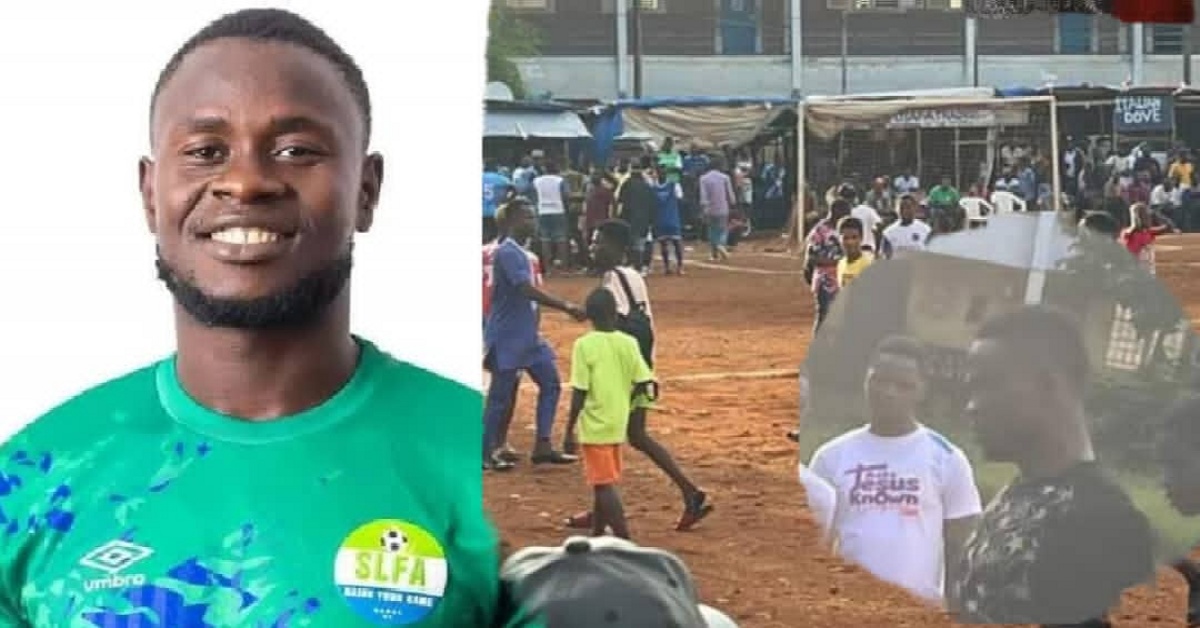The intention of this week’s editorial is not to dwell on the much-talked-about Musa Tombo situation just for the sake of it. Musa Noah Kamara’s (also known as Musa Tombo) repeated rejection of an overseas lifestyle and foreign football career has been problematised by many Sierra Leoneans without regard for the nuances and peculiarity of his story.
A whole lot of ill-informed and sentimental problematisation. In this matter, we see an opportunity to zoom out and focus on the big picture: how poorly educated we are as a society on mental wellbeing and special needs; our insensitivity to people’s circumstances, especially when we only know their names and not their stories; and the horrible public attitude and behaviour towards people who are different whether through a mental health condition or just how they choose to live.
We are a society that has little or no patience for understanding people who behave differently from the majority of us. The approach is usually to be dismissive, and judgemental or use uninformed spirituality to find answers to behavioural and scientific questions.
Musa is no doubt a talented footballer, unarguably Sierra Leone’s most dangerous man in front of goal. Loved by many, he always delivers, even on the big stage. Everyone remembers his amazing equaliser against African giants Ivory Coast at last year’s African Nations Cup. A few football clubs in Europe and Africa have also made moves to employ the player. Everyone believes that these opportunities could be Musa’s big breakthrough in his footballing career. Musa has a pattern of leaving Sierra Leone and demanding to return home even before settling down, upsetting many, including his own fans.
And the striker has also had ‘disciplinary’ issues locally, sometimes failing to show up for training and then appearing in some of the lowest level competitions in the country. But guess what? He gets called up for the national team and he produces goals. Important goals. At the club level, he makes goalscoring look so easy.
Musa’s unorthodox approach to football has not stopped him from delivering. What does this tell us? It means that we have not taken the time to understand the person (talent) and determine the best ways of working with him so he can stay on top of his game and have a successful career. Those who work with the player and the members of the public have the tendency of applying the same disciplinary standards to Musa, even after we have or are supposed to have learnt that this talented player is different from others we know.
Recently, the Football Association launched an investigation into Musa’s Libya saga and even before understanding the matter, they temporarily suspended the player from all SLFA-sanctioned competitions. Well, that’s probably how it is done in football, but it is also important to note that it is prejudicial and unfair by many standards. Obviously, an athlete is expected to respect the rules and regulations governing the game. But we cannot have the same rules applied to everyone and in equal measure without consideration for their personal circumstances. When we apply the same rules and treat them like everyone else, we are making it impossible for them to thrive.
And it is not a matter of sympathy but empathy that helps us to understand our individual circumstances and support one another. Musa is an asset, shows up when the nation needs him and is castigated for being a different person who probably has different needs and wants to live differently and still be able to play football and score goals.
Whether it is a mental health situation or not, we cannot say; and no one has taken interest in investigating and understanding the situation to properly manage it. This means the way the football authorities manage Musa and what the public should expect from the talent is not informed by any science or reasoning. Purely sentiments and negativity.
Musa is the trending story here but the problem is much bigger and our attitude and behaviour show that we are stuck in old thinking and we do not evolve to accommodate people amongst us who are different. This is a problem you find in schools, universities and the workplace. In fact, it is a societal problem and it is high time we began to understand that everyone is not the same and therefore, our needs might be different. These differences might be a result of an invisible disability such as intellectual challenges or what would otherwise be referred to as a disorder.
Our attitude, policies and laws must reflect this reality. Institutions like the SLFA must be examples and Musa is a case for them to demonstrate their appetite for modern-day people management. The educational system, healthcare and other sectors must all evolve to appreciate that people are different and those peculiarities, regardless of the causes, could be hiding some incredible talent that needs to be nurtured and encouraged. We have used the word ‘different’ and its variances so many times in this piece because that is exactly the point: people are different and therefore their needs might be different and the way we work or relate with them must reflect those differences.
It is probably going to be a wet weekend. Stay dry and safe.




 Post a comment
Post a comment









